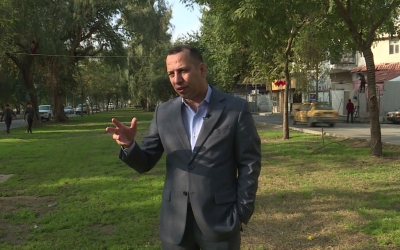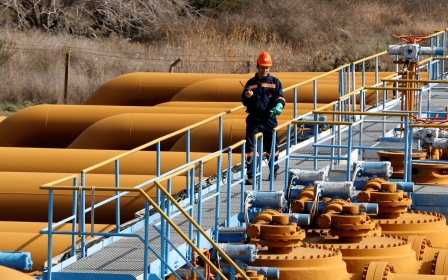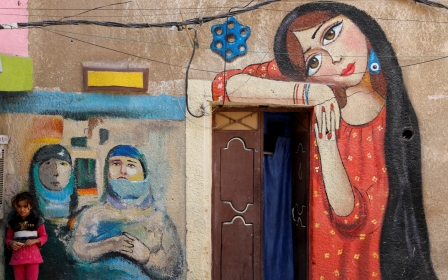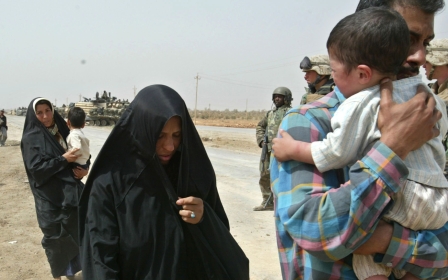Hisham al-Hashimi: Anger and confusion in Iraq after analyst's suspected killer disappears
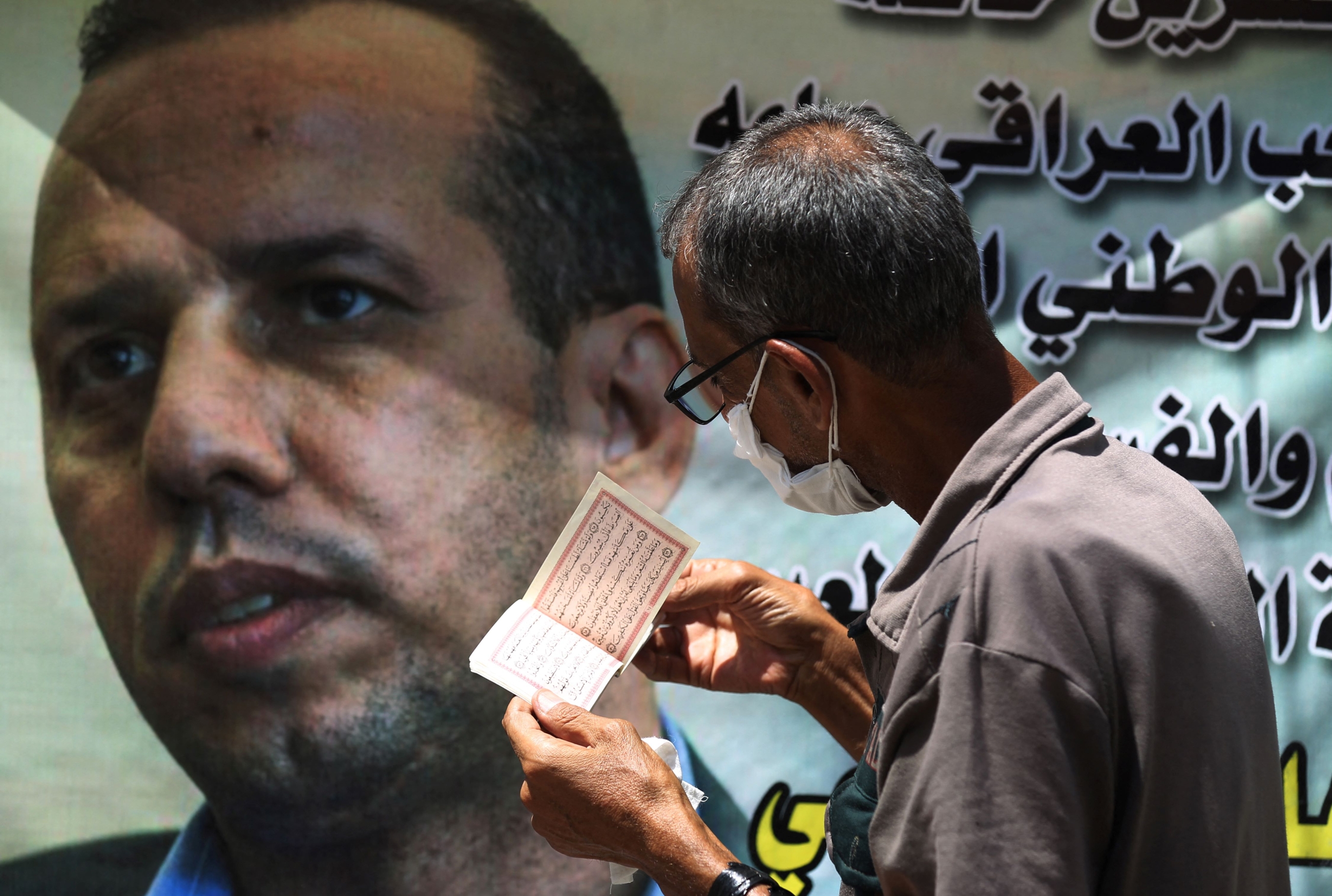
Official Iraqi documents have revealed that the suspect in the killing of prominent Iraqi analyst Hisham al-Hashimi is no longer in custody, provoking anger and accusations of foul play.
Hashimi, an expert on militant groups and a former government adviser, was shot dead by a gunman on a motorcycle in Baghdad in July 2020.
The killing of such a high-profile figure, one popular with many anti-government activists, sparked outrage. A year later, then Prime Minister Mustafa al-Kadhimi said the culprits - including 36-year-old police lieutenant Ahmed al-Kenani - had been arrested.
Kenani, who had made a televised confession shortly after his arrest, was a supporter of the Iran-backed armed group Kataeb Hezbollah, a source told Middle East Eye shortly after the arrest.
On Tuesday, however, parliamentarian Nedaa Hassan Madi al-Kuraiti posted on her Facebook page a letter she received from the justice ministry, in response to inquiries she had sent, that suggested Kenani was not in custody.
New MEE newsletter: Jerusalem Dispatch
Sign up to get the latest insights and analysis on Israel-Palestine, alongside Turkey Unpacked and other MEE newsletters
The letter, dated December 2022 and apparently from Minister of Justice Khaled Shawani to the office of the MP - a member of the anti-corruption Imitadad movement - said the ministry had been informed by both the Iraqi Correctional Department and the Juvenile Reform Department that Kenani was not in their facilities.
'There are many political parties who have blood on their hands with this crime'
– Hisham al-Mozani, Al-Amal Association
In a statement on Tuesday carried by Shafaq News, Hashimi's family said they were "deeply disturbed" by the news.
"If these reports are confirmed, it is a blatant violation of justice and adds insult to injury," they said.
"The assassination alone was a heinous act, targeting a highly influential figure in Iraqi society, but the escape of the suspect undermines the very fabric of the Iraqi state and its ability to deliver justice to its citizens."
The family demanded Prime Minister Mohammed Shia al-Sudani open an investigation into the incident.
Middle East Eye has reached out to the Justice Ministry but received no response by the time of publication.
Delayed justice
Kenani had been detained since 2021, but attempts to bring him to trial had been repeatedly delayed.
Kataeb Hezbollah, the group to which Kenani allegedly belonged, has been repeatedly accused of carrying out kidnappings and assassinations of anti-government activists. A number of officials in the current Iraqi government are known to be linked to Kataeb Hezbollah and other Iran-backed armed groups.
In her Facebook post, Kuraiti said she had been in touch with the justice ministry and the interior ministry several times over bringing Kenani to trial, during which she had received the letter saying he was not in the Correctional Department and the Juvenile Reform Department prisons.
She added that she would continue to publish documents she received relating to the "protest martyrs", referring to Hishami and other government critics who were killed in the wake of the 2019 anti-government demonstrations.
Hisham al-Mozani, an activist with Al-Amal Association - an Iraqi NGO that seeks justice for human rights defenders killed by police and militias - told MEE that the people suspected of killing Hashimi were now more powerful than ever.
"I don't think the Iraqi government is interested in justice on this issue, because there are many political parties who have blood on their hands with this crime," he said.
Mozani suggested the recurring delays in prosecuting Kenani were a tactic aimed at allowing the killing of Hashimi to fade in the public mind.
"It won't be so loud in the streets, or in the media, because many things happened after [the killing] that made the majority forget about this crime," he said.
"This political crime is linked directly with the political system - now the militia is more powerful... with Sudani they now have more ministers, more places in the government, so they will try more and more to cover this crime and make it forgotten."
Middle East Eye delivers independent and unrivalled coverage and analysis of the Middle East, North Africa and beyond. To learn more about republishing this content and the associated fees, please fill out this form. More about MEE can be found here.


